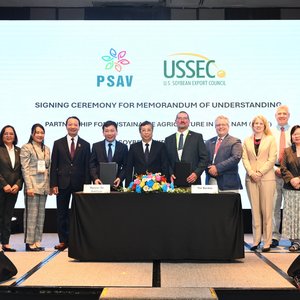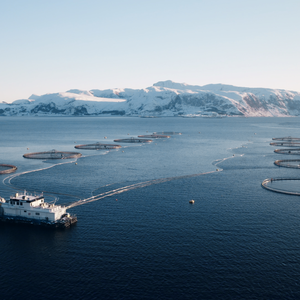The challenge of feeding a growing population of 9 billion by 2050 requires collaboration across all stakeholders on a scale never seen before and it has to start now, according to the DuPont Advisory Committee on Agriculture Innovation and Productivity for the 21st Century. The committee released a report today detailing recommendations for closing the food productivity gap.
In 2010, DuPont assembled an external committee, which is chaired by former U.S. Senator Thomas A. Daschle, to examine the best public policy mechanisms and business practices to tackle the global challenge to increase agriculture productivity in a sustainable manner. Other committee members are: Charlotte Hebebrand, chief executive of International Food and Agriculture Trade Policy Council; Jo Luck, president, Heifer International; J.B. Penn, chief economist, Deere and Co., and Pedro Sanchez, director of Tropical Agriculture and Rural Development Program, Earth Institute at Columbia University.
"Addressing the food and nutrition needs of a growing population is the defining challenge of this century," said Daschle. "The complexity of this challenge - substantial urbanization, diminished resources such as arable land and water, increased rates of malnutrition - are complex and can only be addressed with the kind of innovation that comes from partnerships and collaboration on a whole new level. Governments, private sector, universities, research institutions, NGOs and farmers must come together with a common purpose."
The committee's recommendations were focused in three areas:
-- Produce more food and increase the nutritional value of food -
Unleashing innovation and ensuring farmers have access to the tools they
need will be essential.
-- Make food accessible and affordable for everyone - Barriers to moving
food, such as infrastructure and government policies, must be removed.
-- Address the challenge in a continuously more sustainable and
comprehensive way - Continuously improving agricultural products and
practices to address natural resource needs and building economic and
social development in key markets will be critical.
Among the specific recommendations were calls for improved public policy in the areas of trade, regulatory approval of agriculture innovations, subsidies and intellectual property protection. The committee also called on the private sector to invest in developing markets to build sustained economic growth.
Key areas where large-scale collaboration was recommended included public/private efforts in research and development, especially to develop and implement a strategy for improving productivity and nutritional value of indigenous crops; investment in farmer extension services and financing; and development of enhanced science-based education systems worldwide and youth and leadership development programs in key developing markets, such as Africa.
"We are grateful for the hard work and perspective of the committee. DuPont is ready to take action to help implement the recommendations," said DuPont Executive Vice President James C. Borel. "If we work together and listen to farmers of all disciplines, we can tackle this challenge. Together we can do what no one can do alone."
According to the United Nations, world population has been increasing by an estimated 78 million each year and is expected to reach 9 billion by 2050, requiring global food production to be 70 percent greater than today's levels to feed the population. This must all be done while addressing sustainability needs such as land and water use.










